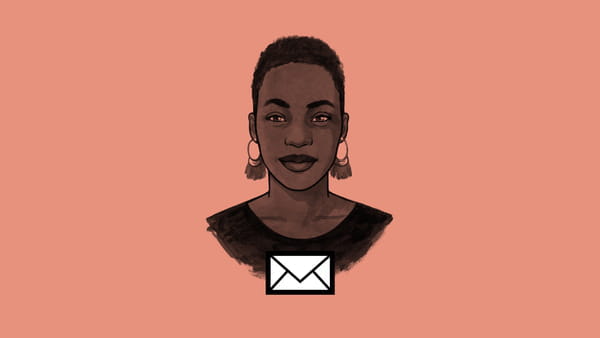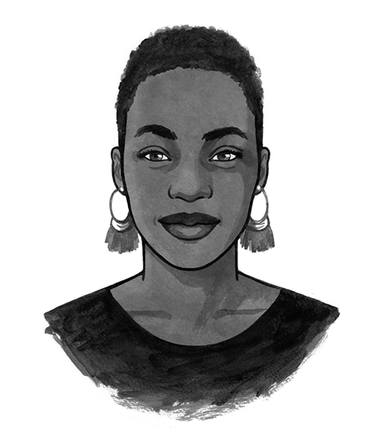Hi,
Being alive is hard. And I don’t think so just because I have a slightly keener than normal interest in death . I just think that objectively, being alive in modern times, especially as an adult, is exhausting. It feels like we never really run out of things to do, goals to meet, projects to complete, or bills to pay. Some of us have it easier than others; the relative difficulty of any person’s life can depend on gender, economic status, place of residence or origin, physical health, and a myriad of other factors. But on the whole, most people would probably agree that staying alive is pretty demanding.
But imagine if, instead of just surviving by playing by society’s rules, we could somehow completely take control of our lives.
Across societies, there are routines or scripts that many of us follow, which ultimately function to free up the mental or emotional resources that we need to go about daily life. Some of these templates are designed by us personally, like a morning routine; some, by the infrastructure that is available to us, like the route we take to work; some, by social norms, like the age at which we might begin to feel pressured to enter committed romantic relationships.
These routines or scripts are useful, but sometimes the fact that they are so inescapable can make them a bit dangerous. For example, we take it for granted that a child, once born, will spend some time at home with a primary caregiver, usually its mother. It will start school, complete about 18 years of education, become financially independent by getting a job, secure long-term intimate companionship, make some babies of its own, acquire a few material possessions, and then die.
On a micro scale, whatever actions are necessary to produce this outcome will differ from person to person. Still, this life arc is extremely popular. Any human being today can live such a life and be considered to have done well for themselves.
But who decided on this script? Where, when and how did this become the "typical" human experience? And who says it has to be your experience?
It’s very easy to imagine that whatever is "normal" or "typical" today has been so for a long time. Most people don’t know or learn much about contemporary societies besides their own, speak much less of trying to discover what life was like in other eras. And anyway, not even the most well-read historian conducts their life with full and permanent awareness of how modern times might differ from other points in human history. Still, I find it useful to sometimes ask myself: if this is the "normal" thing for me to do or the normal way for me to be, why is it so? Where, when, how and by whom was it decided?
I find it useful to ask this because it offers me a chance to expose social forces or ideas that I might otherwise never notice, because I’m too busy just trying to make it from one day to the next. It is extremely easy – maybe even expected – for people to just follow the rules and hope for the best. But there is so much power in pausing, examining the script, and asking yourself: is this working for me? Is this working at all?
The first time I really paused to examine what I call the script, I was a young woman being pressured by my extended family to commit to spending the rest of my life with a man I didn’t love, simply because I was pregnant with our child. As a "good" Christian Yoruba girl, I was expected to be eager for the marriage, just so I could fix my departure from the "husband before baby" script.
Until then, I had never really questioned whether I was a "good Christian Yoruba girl" or whether I wanted the life that such an identity might prescribe for me. But there I was, experiencing extreme social pressure from relatives two or three times my age, most of whom were surviving or had survived miserable marriages. In that moment I realised, much to my family’s chagrin, that I wanted something different for myself.
It completely changed my life when it became clear to me that I – not family, not society, not anything or anyone else – could make the rules that I live by. Snapping out of autopilot mode as a pregnant university student and grabbing the reins to define my own "normal" was just the beginning of a journey that has been very difficult sometimes, but always worth it. Now, I’m on a lifelong quest for liberation that informs every area of my life; my relationships, my career choices, how I raise my child, and even the route I take to work.
PS: I work from home.
It’s true that one can never escape society and its norms. Still, that doesn’t mean that we must conform completely to what is expected of us, especially when those expectations don’t align with our desires for ourselves.
As we can see from the widespread calls for social reform around the world, society is kinda bad at defining what is "normal" or "good" for everyone. That’s why we have to do it for ourselves. For many of us, our identities, experiences and desires often ensure that self-actualisation will only take place outside of the norm. The more people there are who expand what "normal" is, the more room there will be for all of us to live fulfilled, satisfying lives on our own terms.
In what area of your life are you ready to make the rules for yourself, regardless of what society or others say? Let me know in the contribution section below, or email me at olutimehin@thecorrespondent.com.
Till next time,
OluTimehin
 Want to receive my newsletter in your inbox?
Follow my weekly newsletter to receive notes, thoughts, and questions on the topic of Othering and our shared humanity.
Want to receive my newsletter in your inbox?
Follow my weekly newsletter to receive notes, thoughts, and questions on the topic of Othering and our shared humanity.

